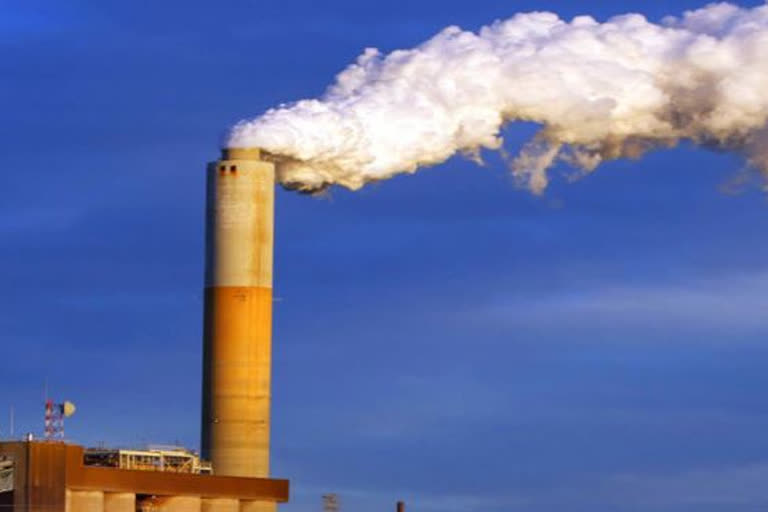Hyderabad: Around this time last year, the Kejriwal government had declared a state of emergency in Delhi and closed schools due to increased air pollution. One year later, now, the rampant burning of crop waste in Punjab is once again suffocating the national capital. Recent analyses indicate that air quality in 29 northern cities, including Delhi, has dropped to alarming levels. Between November and February, when the winters are cold every year, air pollution in North India has become a routine.
Arbitrary burning of crop waste continued vehicular and industrial pollution and use of fireworks during festivals and celebrations is heavily leading to inferior air quality. Ordinary people are frightened even to think of the severity of this 'annual catastrophe' coupled with the onslaught of Covid crisis and the severity of the consequences. Doctors and scientists are cautioning that the Coronavirus, which could tolerate the heat of the summer temperatures, will easily thrive and spread in cold climates.
Also read: Javadekar virtually launches biomass plant to curb air pollution in Delhi, North India
In places of high air pollution, its capacity to attack and increase the death rate is very high. Odisha, West Bengal, Rajasthan, Haryana and Delhi have announced bans on the use and sale of fireworks, fearing that the death toll could rise if care is not taken at this juncture. The National Green Tribunal, which woke up suddenly, issued notices to 18 states, including AP and Telangana, asking their status and approach during the crisis. With Diwali just around the corner in a week, what's the point of rushing notices now?
Year after year, it is being proved that there is no use of issuing occasional warnings and circulars of caution during festivals or whenever the burning of crop waste is in full swing after the farming activity. The 'Greenpeace' study has confirmed that 3.5 lakh infants are diagnosed with asthma every year in the country mainly due to vehicle and industrial pollution and lung cancer is on the rise in adults. Microscopic dust particles up to 10 to 11 times the range set by the World Health Organization are accumulating in the air and are polluting cities like Lucknow converting them into ‘gas chambers’. Crores of tonnes of crop waste being burnt by Punjab, Haryana and Uttar Pradesh states is emitting increasingly heavy carbon monoxide, carbon dioxide, fine dust particles, ash, sulfur dioxide, etc., and polluting the air, soil and water in the surrounding areas.
Experts warn that this time around also if corrective action is not taken routinely and perfunctorily the consequences could be devastating and beyond control. September statistics show that even if the level of particulate matter in the air rises by a single microgram, it will increase the Covid death-rate by eight per cent. Therefore, pollution control boards, NGTs and government agencies need to commit to expeditious action. A new study has revealed that state pollution control boards are facing perpetual dearth in terms of resources needed to maintain air quality standards.
Also read: Enough laws in place, implementation a challenge: Experts on air pollution
On its part, the Centre has scrapped the Environmental Pollution Control Authority (EPCA), in existence for the last 22 years, and brought in a special ordinance to set up a Commission to improve the situation in the central capital region. Unless the corruption-ridden Pollution Control Boards are completely cleansed and the polluting industries and vehicles across the country are controlled on the lines of the Chinese model the air quality will not improve and the public life will not stabilize.



